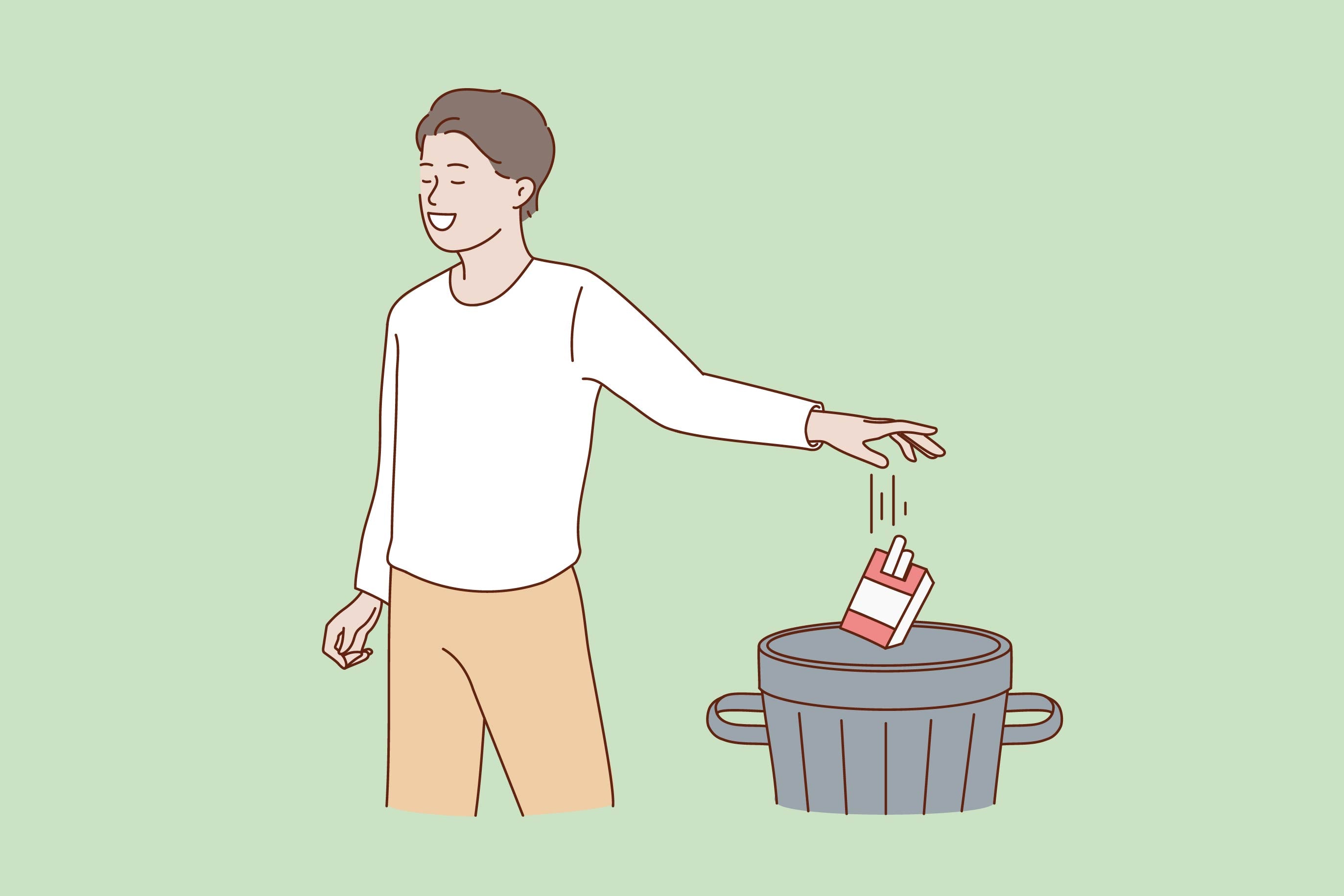Quitting smoking is a major challenge, especially for long-time smokers. The body gets used to the regular intake of nicotine and shows withdrawal symptoms when this suddenly stops. Symptoms such as anxiety, depression or mood swings are not uncommon.
We want to explain to you what exactly happens in your body when you stop smoking and how you can best survive withdrawal.
Quit smoking at last - these are the benefits
One of the best motivations to quit smoking is to look at the many benefits that quitting permanently offers. First and foremost, of course, are the health aspects, which improve dramatically. For example, the risk of developing various types of cancer drops dramatically, and the risk of lung cancer is halved after around ten years without cigarettes. There are also some improvements with regard to cardiovascular health, as blood pressure returns to normal and falls back to the level of a non-smoker.
Your appearance also improves after your last cigarette, as yellow fingers from smoking are now a thing of the past. Your skin also becomes firmer and your hair no longer smells of smoke. You will generally feel fitter and your body will be more resilient. Your wallet will also be happy, especially with the constantly rising price of cigarettes.
All the advantages at a glance:
- The risk of cancer is reduced
- Cardiovascular health is improved
- The airways are cleared
- Infections and respiratory problems occur less frequently
- You feel fitter
- There are financial advantages
- Your appearance improves
Quit smoking at last - why does the body go crazy?
Among other toxic substances, cigarettes contain the addictive substance nicotine. Nicotine affects the metabolism in the brain and causes the body to release various hormones. These hormones, especially dopamine, make us feel good and relaxed. If the intake of nicotine suddenly stops, the release of dopamine also drops sharply. As a result, you feel nervous, often react irritably and suffer from mood swings. The body then craves the next cigarette to get the next kick.
Severe physical symptoms can include dizziness, headaches and difficulty concentrating. You may have trouble falling asleep and occasionally start shaking. Since cigarettes suppress your appetite, you may also gain weight. However, there is a ray of hope: Withdrawal symptoms don't usually last long and are overcome after about ten days. Of course, the length of the symptoms depends on how long and how often you smoked.
Quit smoking at last - how to get through withdrawal
Some people cope better with cold turkey than others. If quitting smoking suddenly is too difficult for you, you can try a gradual withdrawal. Gradually reduce the number of cigarettes you smoke each day and set a clear date for your last cigarette.
Try to distract yourself with other activities and spend more time with non-smokers. You can also start by switching to other products that are less harmful to your health. With nicotine-containing products such as snus, you can gradually reduce the nicotine content as the products vary in strength. There are even nicotine-free snus pouches, which are extremely helpful when quitting smoking so that the body doesn't go crazy.
Conclusion - Quitting smoking is difficult, but achievable
Although quitting smoking is incredibly difficult and requires strong nerves, the benefits of a smoke-free life far outweigh the difficulties. Your health will improve significantly and the risk of cancer and other diseases will go down. Financially, it is a relief as you no longer have to spend your money on packs of cigarettes and can use it elsewhere.
Before you start smoking cessation, you should be aware of withdrawal symptoms such as nervousness, concentration problems or irritability. You can choose between quitting smoking abruptly or gradually.




 Dieses Produkt schädigt Ihre Gesundheit und macht stark abhängig.
Dieses Produkt schädigt Ihre Gesundheit und macht stark abhängig.